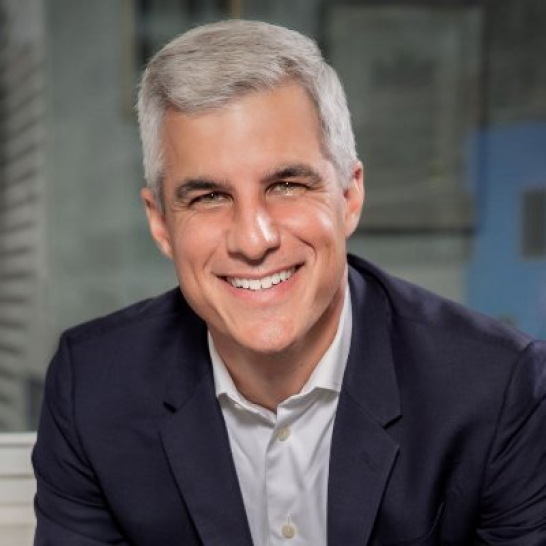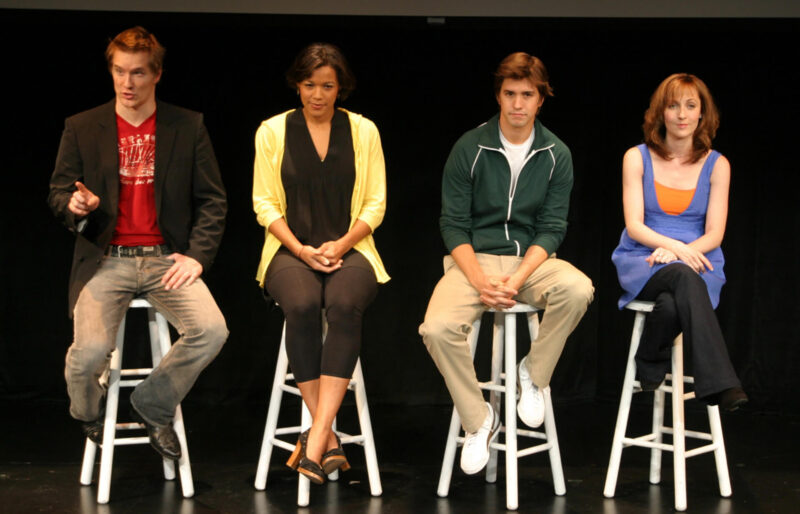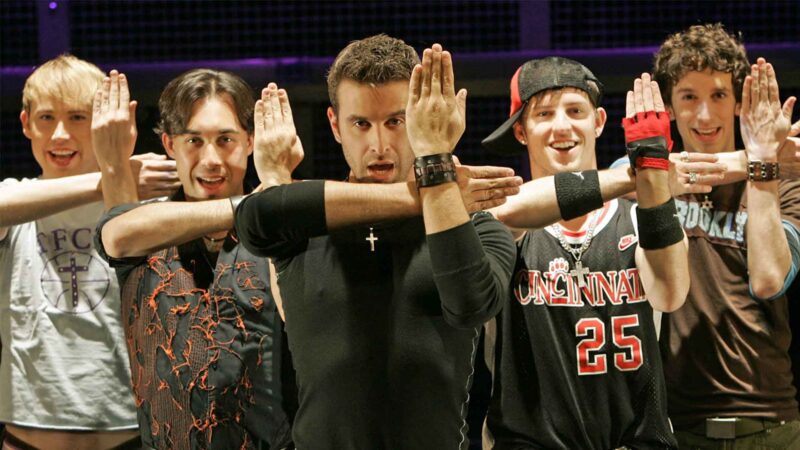Why Your Development Readings Need Real Audience Members (Not Just Industry Insiders)
I get a lot of invites to see readings and workshops.
And I produce a lot of readings and workshops.
My first instinct (and probably yours too) is to invite other producers and industry insiders to see ‘em, with the hopes of gaining support, from investors, producers, etc.
And while that’s important, industry insiders are NOT the most important people to have at your reading or workshop.
Readings and workshops are the fertile ground where our future Broadway blockbusters begin to take shape.
But shows only become blockbusters when real, live Audience members make them so.
That means, if you and I want our shows to succeed, we’ve got to get actual paying audience members into those development readings. Here’s why:
1. Industry Insiders Are Not Your Ticket Buyers
Don’t get me wrong—the opinions of agents, producers, directors, and other industry pros are invaluable. They know the mechanics of storytelling and production like the back of their hand. But they often don’t pay for tickets. They often see so many of these readings and workshops that they see them through a lens that’s very different from your average theatergoer.
Your future audience members—the ones who will shell out $200 (!) for a ticket and bring their families along—don’t care about whether your Act Two has three distinct climax beats or if your scene transitions need automation. They care about whether they’re entertained, moved, and compelled to tell their friends about your show.
2. Real Audiences Give You Real Feedback
When you bring paying audience members into a reading, you’re bringing in your ultimate focus group. They’re the ones who will laugh (or not) at your jokes, cry (or not) at your emotional beats, and gasp (or not) at your plot twists. The energy in the room with a mixed crowd of insiders and regular folks is electric and often eye-opening.
One of my shows had a joke in Act One that killed every time we read it for an industry audience. When we put it in front of regular people, it fell flat. Why? Because the insiders were responding to an inside-baseball reference that didn’t resonate with a broader audience. That’s a lesson you can’t learn without audience feedback.
3. It Keeps You Honest
Having ticket buyers at your readings forces you to stay accountable. It’s easy to fall into the trap of producing for your peers—the people who will praise your cleverness and innovation. But when you’re staring down the barrel of a mom from Des Moines who saved up to see your show, you’ll be reminded that your job isn’t to impress the industry. It’s to serve the audience.
4. You Can Test Marketing Early
If you invite paying audience members, you’ve got an opportunity to test your marketing materials early in the process. How did they find out about the reading? Did your title grab their attention? Did your blurb make them curious enough to buy a ticket? This kind of information is marketing gold that can help guide your show’s promotional strategy as it moves closer to production.
5. Buzz Starts Here
Word-of-mouth is the lifeblood of Broadway, and buzz doesn’t start on opening night—it starts in these early readings. If you’ve got a show that connects with people, they’ll start talking about it before you’ve even locked down your first rehearsal schedule. That organic excitement can’t be bought, but it can be cultivated by giving real people a chance to experience your work.
How to Do It
So how do you ensure that your readings have a mix of industry and paying audience members?
- Create a list. Offer up the opportunity to your social media following, or email list (don’t have one? Start one). Watch how excited people are to get this opportunity!
- Partner with local theaters or community groups. They’re often thrilled to provide audiences for developmental work.
- Survey your attendees. When the reading is over, ask them about their experience, so you can refine not just the show, but how you engage with your audience.
The Bottom Line
Broadway shows are made for the people. If you’re not involving them in your development process, you’re missing out on crucial feedback, honest reactions, and the chance to build early buzz. So next time you’re planning a reading, look beyond your industry rolodex and invite the people who matter most—the audience.
Want to be on our list for future “real people” readings? Sign up here.
Podcasting
Ken created one of the first Broadway podcasts, recording over 250 episodes over 7 years. It features interviews with A-listers in the theater about how they “made it”, including 2 Pulitzer Prize Winners, 7 Academy Award Winners and 76 Tony Award winners. Notable guests include Pasek & Paul, Kenny Leon, Lynn Ahrens and more.














